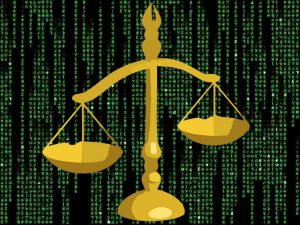By Richard Heeks, Professor of Development Informatics
What would “data justice for development” mean? This is a topic of increasing interest. It sits at the intersection of greater use of justice in development theory, and greater use of data in development practice. Until recently, very little had been written about it but this has been addressed via a recent Centre for Development Informatics working paper: “Data Justice For Development: What Would It Mean?” and linked presentation / podcast.
Why concern ourselves with data justice in development? Primarily because there are data injustices that require a response: governments hacking data on political opponents; mobile phone records being released without consent; communities unable to access data on how development funds are being spent.
But to understand what data justice means, we have to return to foundational ideas on ethics, rights and justice. These identify three different mainstream perspectives on data justice:
- Instrumental data justice, meaning fair use of data. This argues there is no notion of justice inherent to data ownership or handling. Instead what matters is the purposes for which data is used.
- Procedural data justice, meaning fair handling of data. This argues that citizens must give consent to the way in which data about them is processed.
- Distributive data justice, meaning fair distribution of data. This could directly relate to the issue of who has what data, or could be interpreted in terms of rights-based data justice, relating to rights of data privacy, access, control, and inclusion / representation.
 We can use these perspectives to understand the way data is used in development. But we also need to take account of two key criticisms of these mainstream views. First, that they pay too little attention to agency and practice including individual differences and choices and the role of individuals as data users rather than just data producers. Second, that they pay too little attention to social structure, when it is social structure that at least partly determines issues such as the maldistribution of data in the global South, and the fact that data systems in developing countries benefit some and not others.
We can use these perspectives to understand the way data is used in development. But we also need to take account of two key criticisms of these mainstream views. First, that they pay too little attention to agency and practice including individual differences and choices and the role of individuals as data users rather than just data producers. Second, that they pay too little attention to social structure, when it is social structure that at least partly determines issues such as the maldistribution of data in the global South, and the fact that data systems in developing countries benefit some and not others.
To properly understand what data justice for development means, then, we need a theory of data justice that goes beyond the mainstream views to more clearly include both structure and agency.
The working paper proposes three possible approaches, each of which provides a pathway for future research on data-intensive development; albeit the current ideas are stronger on the “data justice” than the “for development” component:
- Cosmopolitan ideas such as Iris Marion Young’s social connection model of justice could link data justice to the social position of individuals within networks of relations.
- Critical data studies is a formative field that could readily be developed through structural models of the political economy of data (e.g. “data assemblages”) combined with a critical modernist sensitivity that incorporates a network view of power-in-practice.
- Capability theory that might be able to encompass all views on data justice within a single overarching framework.
Alongside this conceptual agenda could be an action agenda; perhaps a Data-Justice-for-Development Manifesto that would:
- Demand just and legal uses of development data.
- Demand data consent of citizens that is truly informed.
- Build upstream and downstream data-related capabilities among those who lack them in developing countries.
- Promote rights of data access, data privacy, data ownership and data representation.
- Support “small data” uses by individuals and communities in developing countries.
- Advocate sustainable use of data and data systems.
- Create a social movement for the “data subalterns” of the global South.
- Stimulate an alternative discourse around data-intensive development that places issues of justice at its heart.
- Develop new organisational forms such as data-intensive development cooperatives.
- Lobby for new data justice-based laws and policies in developing countries (including action on data monopolies).
- Open up, challenge and provide alternatives to the data-related technical structures (code, algorithms, standards, etc) that increasingly control international development.
This blog originally appeared on the ICTs for Development website.
